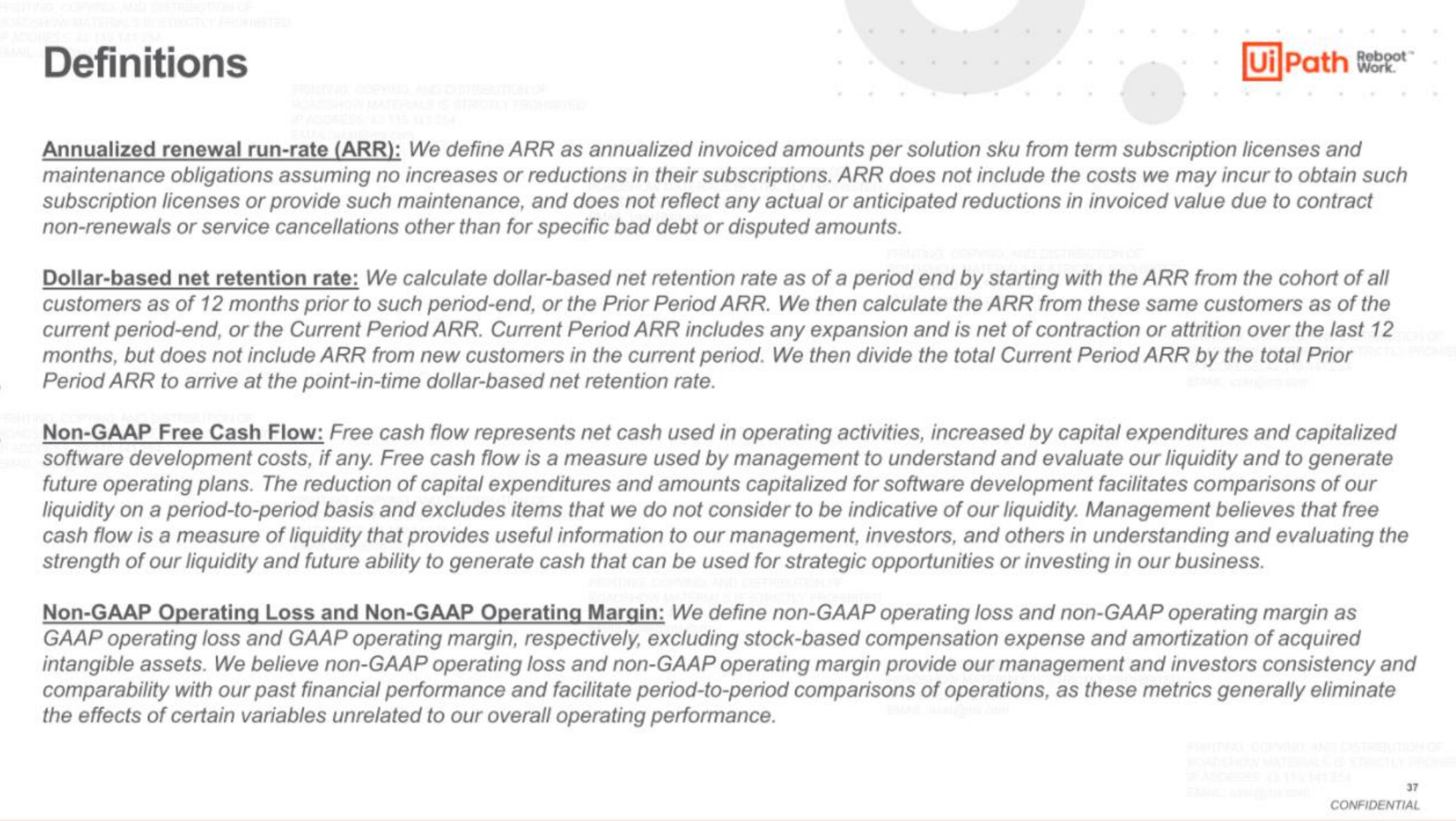UiPath IPO Presentation Deck
Definitions
Ui Path Work
Annualized renewal run-rate (ARR): We define ARR as annualized invoiced amounts per solution sku from term subscription licenses and
maintenance obligations assuming no increases or reductions in their subscriptions. ARR does not include the costs we may incur to obtain such
subscription licenses or provide such maintenance, and does not reflect any actual or anticipated reductions in invoiced value due to contract
non-renewals or service cancellations other than for specific bad debt or disputed amounts.
Dollar-based net retention rate: We calculate dollar-based net retention rate as of a period end by starting with the ARR from the cohort of all
customers as of 12 months prior to such period-end, or the Prior Period ARR. We then calculate the ARR from these same customers as of the
current period-end, or the Current Period ARR. Current Period ARR includes any expansion and is net of contraction or attrition over the last 12
months, but does not include ARR from new customers in the current period. We then divide the total Current Period ARR by the total Prior
Period ARR to arrive at the point-in-time dollar-based net retention rate.
Non-GAAP Free Cash Flow: Free cash flow represents net cash used in operating activities, increased by capital expenditures and capitalized
software development costs, if any. Free cash flow is a measure used by management to understand and evaluate our liquidity and to generate
future operating plans. The reduction of capital expenditures and amounts capitalized for software development facilitates comparisons of our
liquidity on a period-to-period basis and excludes items that we do not consider to be indicative of our liquidity. Management believes that free
cash flow is a measure of liquidity that provides useful information to our management, investors, and others in understanding and evaluating the
strength of our liquidity and future ability to generate cash that can be used for strategic opportunities or investing in our business.
Non-GAAP Operating Loss and Non-GAAP Operating Margin: We define non-GAAP operating loss and non-GAAP operating margin as
GAAP operating loss and GAAP operating margin, respectively, excluding stock-based compensation expense and amortization of acquired
intangible assets. We believe non-GAAP operating loss and non-GAAP operating margin provide our management and investors consistency and
comparability with our past financial performance and facilitate period-to-period comparisons of operations, as these metrics generally eliminate
the effects of certain variables unrelated to our overall operating performance.
37
CONFIDENTIALView entire presentation